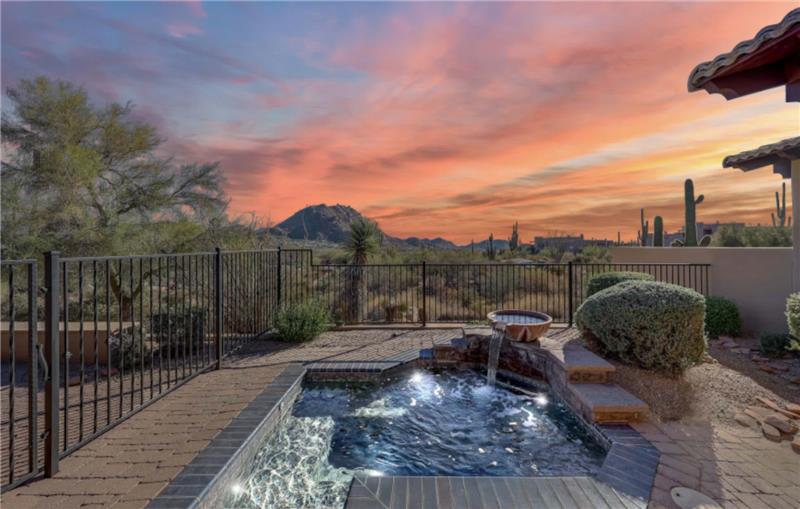Fractional Ownership vs Timeshare: All You Need to Know About it.
Discover the differences between fractional ownership and timeshare in this comprehensive article. Learn about ownership structures, usage flexibility, property quality, and cost structures. Find out which option is best for you!

What is Timeshare?
Timeshare, also known as vacation ownership, is a real estate ownership model where multiple individuals share ownership rights to a property, typically a resort or vacation home. This concept emerged in the mid-20th century as a way for individuals to own vacation properties without the full financial commitment and responsibilities of sole ownership.
Types of Timeshare
Fixed Week: In this type of timeshare, owners have a specific week or weeks allocated to them each year. For example, an owner may have the third week of July every year. This provides predictability but limited flexibility in choosing vacation dates.
Floating Week: Owners in a floating week timeshare have more flexibility in choosing their vacation dates within a specific season. They must book their desired week(s) in advance, subject to availability.
Points-Based: This newer model allows owners to purchase points that can be exchanged for time at various resorts within a timeshare network. Owners can choose different destinations and accommodation types based on the number of points they own.
What is Fractional Ownership?
Fractional ownership is a real estate ownership model where multiple individuals or entities share ownership of a high-value asset, such as a vacation property, luxury yacht, or private jet. Unlike timeshare, fractional ownership typically involves owning a fraction of the asset itself rather than just the right to use it during specific periods.
Types of Fractional Ownership
Property-Based Fractional Ownership: This type of fractional ownership applies to real estate properties such as vacation homes, villas, or condominiums. Owners purchase a fraction of the property, usually represented in weeks or months of usage per year.
Asset-Based Fractional Ownership: In this model, individuals or entities share ownership of high-value assets like yachts, private jets, or exotic cars. Each owner holds a percentage stake in the asset and can use it based on an agreed-upon schedule or usage allocation.
For a deeper understanding of fractional ownership and industry perspectives, check out the insights shared in the Forbes article on fractional ownership here.
Differences Between Timeshare and Fractional Ownership

Ownership Structure
Usage Flexibility
Property Quality
Cost Structure
Similarities Between Timeshare and Fractional Ownership
When is Timeshare a Better Option?

Timeshare ownership can be a preferable choice for individuals who meet specific criteria and preferences:
Timeshare ownership can be a preferable choice for individuals who meet specific criteria and preferences:
- Affordable Upfront Cost: Timeshare typically involves a lower initial investment compared to fractional ownership. For individuals seeking vacation property access without a substantial upfront financial commitment, timeshare can be a more accessible option.
- Predictable Vacation Schedule: Timeshare offers a structured vacation schedule, often with designated weeks or periods throughout the year. This setup appeals to individuals who prefer a predictable vacation routine without the need for extensive planning or flexibility in choosing different dates each year.
- Standard Resort Amenities: Timeshare properties often provide standard resort amenities such as swimming pools, basic recreational facilities, and on-site dining options. Individuals who are satisfied with these amenities and do not necessarily require high-end luxury experiences may find timeshare accommodations suitable for their needs.
- Limited Usage Needs: For individuals who plan to use vacation properties for a specific duration each year and do not require extended or flexible stays, timeshare can offer a cost-effective solution. It allows owners to enjoy their designated time without the commitment of year-round ownership responsibilities.
- Minimal Property Management Responsibilities: Timeshare owners typically have limited involvement in property management and upkeep. Maintenance tasks and property responsibilities are often managed by the resort or management company, reducing the owner's administrative burdens.
- No Equity Ownership: Since timeshare owners do not own equity in the property, they are not directly impacted by property value fluctuations or market changes. This lack of equity also means they are not responsible for property taxes or other ownership-related expenses beyond their annual maintenance fees.
- Exchange Options: Some timeshare programs offer exchange options, allowing owners to trade their weeks with other properties within the same network. This flexibility can appeal to individuals who desire occasional variety in their vacation destinations without committing to multiple properties.
Overall, timeshare ownership suits individuals looking for a cost-effective, predictable way to enjoy vacation properties with standard amenities and a structured vacation schedule.
When is Fractional Ownership a Better Option?

Fractional ownership presents several advantages that make it a preferable choice for certain individuals:
- Equity Ownership: One of the primary advantages of fractional ownership is that owners hold equity in the property. Unlike timeshare, where ownership is based on usage rights, fractional owners have a tangible stake in the property's value. This equity ownership means they can benefit from potential property appreciation and share in any financial gains upon sale.
- To understand fractional ownership in finance, check out the insights shared in the Live Well article on fractional ownership Here.
- Luxurious and High-End Properties: Fractional ownership typically involves ownership of premium, high-end properties such as luxury vacation homes, private residences, or upscale condominiums. Individuals who seek exclusive experiences, top-notch amenities, and luxurious accommodations often find fractional ownership more appealing than standard resort-style accommodations offered in timeshare arrangements.
- Flexible Usage Options: Fractional ownership often provides greater flexibility in property usage compared to timeshare. Depending on the fractional ownership agreement, owners may have the option to use the property for longer periods, enjoy multiple visits throughout the year, or even have the flexibility to rent out their allocated time to third parties, generating potential income.
- Customized and Personalized Experiences: Fractional ownership can offer a more personalized and customized experience for owners. Since fractional properties are often limited to a smaller group of owners, amenities, services, and property management can be tailored to meet the specific preferences and needs of the owners, creating a more exclusive and tailored vacation experience.
- Shared Maintenance Costs: Shared ownership in fractional properties means that maintenance costs and upkeep responsibilities are divided among the fractional owners. This shared financial responsibility can lead to more efficient property management, higher-quality maintenance, and enhanced property value over time.
- Potential for Cost Savings in the Long Run: While fractional ownership may involve a higher initial investment compared to timeshare, it can result in cost savings over the long term for frequent vacationers. Owners can avoid recurring annual fees associated with timeshare and may experience lower overall costs per vacation day when considering the property's quality, amenities, and usage flexibility.
- Diverse Property Portfolio: Some fractional ownership programs offer access to a diverse portfolio of properties across different locations, allowing owners to enjoy varied vacation experiences without committing to full ownership of multiple properties. This diversity adds to the appeal for individuals who enjoy exploring different destinations and property types.
Fractional ownership appeals to individuals seeking equity ownership, luxurious accommodations, flexible usage options, personalized experiences, shared maintenance costs, potential cost savings in the long run, and access to a diverse property portfolio. It offers a level of exclusivity, customization, and financial investment benefits that may align well with certain vacation preferences and lifestyle choices.

Let's Recap!
In conclusion, the comparison between fractional ownership and timeshare reveals distinct advantages and considerations for prospective property owners. Timeshare offers affordability, predictable vacation schedules, and standard resort amenities, making it suitable for those prioritizing upfront cost savings and convenience. On the other hand, fractional ownership provides equity ownership, luxurious accommodations, flexible usage options, shared maintenance costs, and potential long-term cost savings, catering to individuals seeking premium experiences and investment benefits. If you're exploring the best-shared ownership option tailored to your preferences and lifestyle,Visit our website (link para o assessment) for more insights and schedule a meeting with our team. Our experts can guide you through the nuances of both models and help you make an informed decision that aligns with your vacation and investment goals.
Ready to explore more about vacation properties? Complete our Assessment Form and schedule a consultation. We are here to help you assess how different vacation solutions can fit into your travel plans and meet your vacation expectations.
Keep reading







